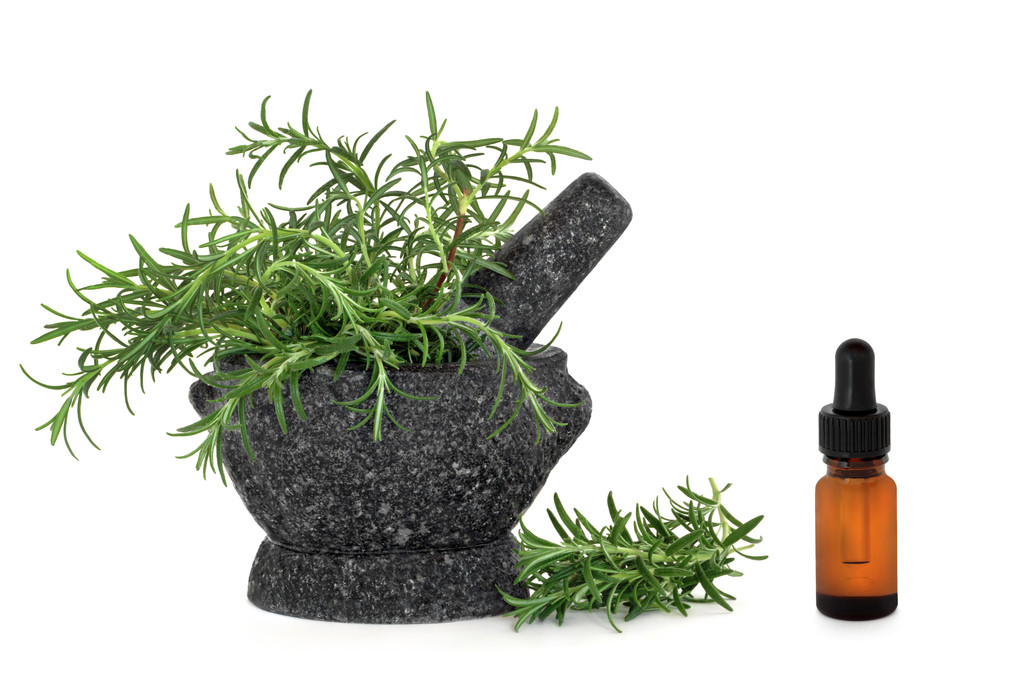Rosemary tea not only tastes delicious, but also has a positive effect on your body and mind. In this article you can read how to prepare the healthy tea and how it works.
Nowadays, rosemary is mainly known as a spice. Rosemary is much more than a tasty kitchen herb that goes well with potatoes. Rosemary was already valued as a medicinal plant by the Greeks and Romans. Rightly so, as modern research shows. The healing properties of rosemary are versatile.
A popular way to benefit from the health benefits of rosemary is with rosemary tea. Here you can read how rosemary tea works and how to prepare the tea.

This is how rosemary tea works
Various essential oils are primarily responsible for the effect of rosemary tea. Furthermore, depending on the location, the following active ingredients are included:
Tannins such as rosmarinic acid
Diterpenes such as carnosic acid
flavonoids
glycolic acid
saponins
antioxidants
Rosemary has a variety of positive effects on our body, as various studies have shown:
Antioxidant: Researchers from Basel examined the antioxidant effect of rosemary in a comprehensive study in 2018. Antioxidants support your body in cell renewal, fight oxidative stress and free radicals.
Antibacterial: The same study also found that the active compounds in rosemary successfully eliminated various strains of bacteria, such as E. choli, in the laboratory.
Anti-cancerous: In the laboratory and in the first animal experiments, the active ingredients of rosemary were able to demonstrably inhibit the growth of tumor cells and thus reduce the size of tumors.
digestive: In addition, the ingredients have a positive effect on our digestion. Rosemary can relieve bloating and flatulence.
Stimulates blood circulation: Our circulation and blood flow can also benefit from rosemary.
Diuretic: Rosemary has also been shown to have a slightly diuretic effect. This can be used especially in the treatment of cystitis.
For the medicinal effects of rosemary, you can use rosemary oil as well as rosemary tea.
Rosemary tea for your memory
Not only the body can benefit from the healthy ingredients of rosemary. The effect of rosemary is also beneficial for our mind:
The carnosic acid it contains fights free radicals and toxins in the brain that are associated with the development of dementia. It contributes to the health of the human brain, as researchers at the Burnham Institute for Medical Research found.
In further investigations, researchers were able to prove in experiments with humans that 1,8-cineole, the main component of the essential oil in rosemary, has a positive effect on cognitive performance simply by absorbing it through smell and nose.
A study from 2016 therefore dealt with the therapeutic potential of rosemary in Alzheimer’s disease. Since the causes of dementia are still not fully understood scientifically, further research is required. Results so far indicate that rosemary could be a valuable component in the treatment of Alzheimer’s.
A study with students in 2018 not only found improved memory performance, but also a positive influence of rosemary on anxiety and depression. The quality of the subjects’ sleep could also be increased by rosemary.

Make rosemary tea yourself
So there are numerous reasons to drink rosemary tea. The preparation of the healthy tea is very simple:
For 1 cup (250 milliliters) you will need about 1 teaspoon of crushed rosemary leaves or a fresh sprig of rosemary.
Pour boiling water over the plant parts and let the tea steep for eight to ten minutes.
Then remove the boiled plant parts.
Rosemary tea also goes well with dried lemon or orange peel. Make sure the citrus fruits are organic to avoid pesticides.
Important: The daily dose of rosemary leaves should be between four and six grams maximum.

